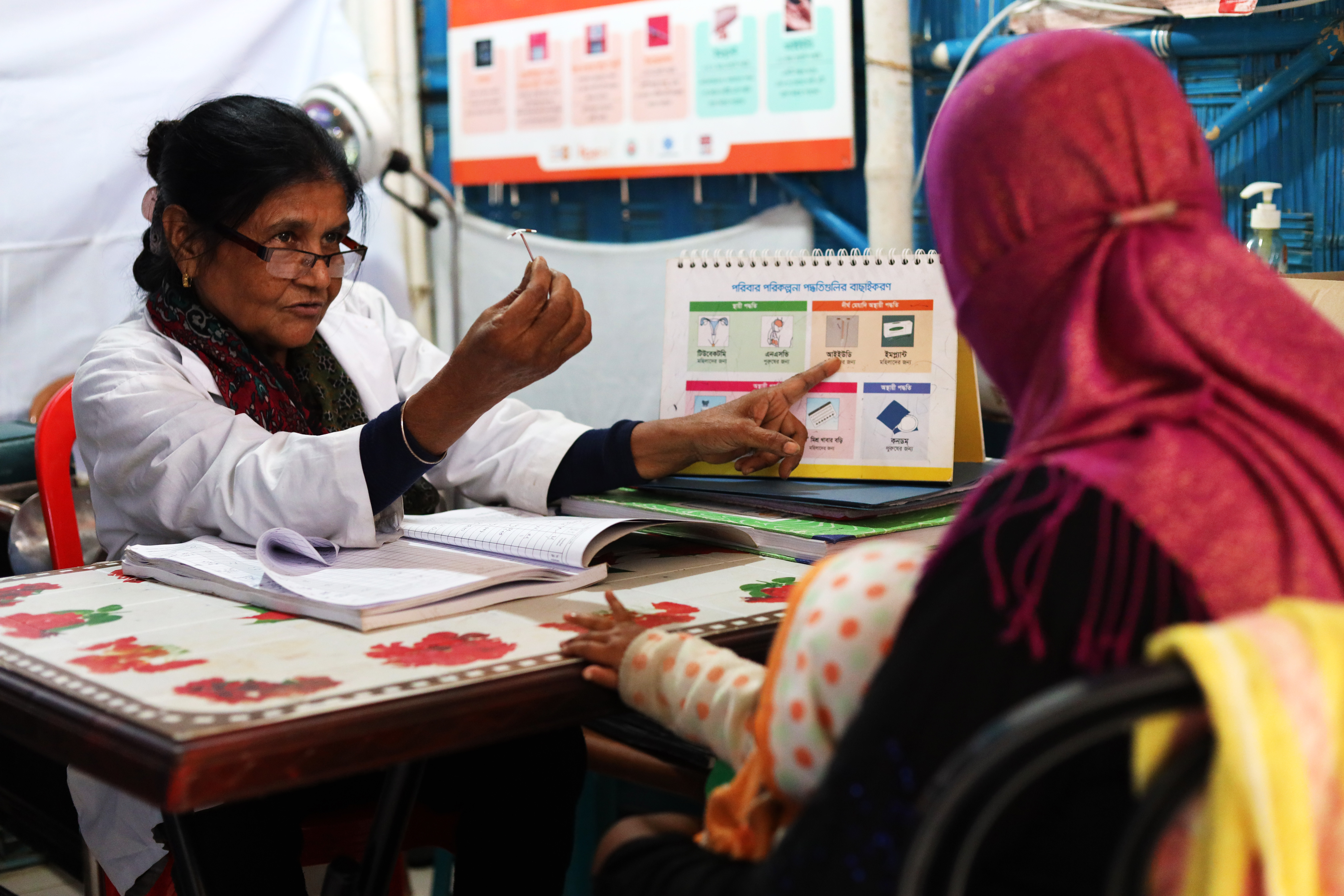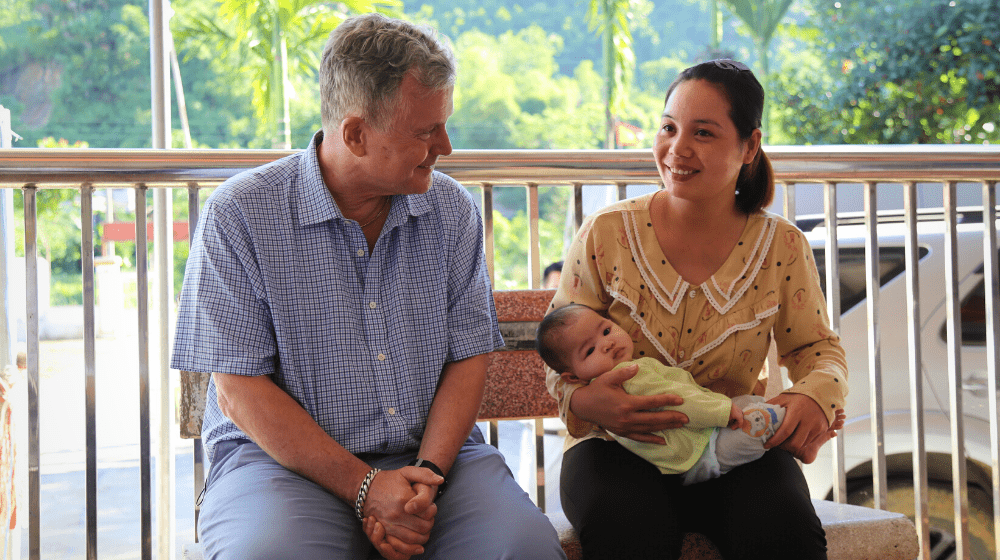In the lead up to the International Conference on Family Planning, to be held in Pattaya, Thailand from 14- 17 November 2022, UNFPA’s Regional Director in Asia and the Pacific, Björn Andersson, underscores the importance of countries investing in family planning that is anchored in human rights and choices.
Unintended pregnancies. Lack of access to contraceptives. Rapidly changing population trends.
These are just some of the challenges that the global family planning community will be discussing in the coming week as it gathers in Pattaya, Thailand, for the International Conference on Family Planning (ICFP). UNFPA has long been a core organizing member of the ICFP, the world’s largest gathering on family planning. The conference brings together policy makers, scientists, and activists from around the world to share experiences, devise new ideas, review existing strategies and forge new partnerships to end unmet need for family planning services.
Access to sexual and reproductive health, including access to contraceptive information and services, is fundamental for everyone, everywhere, to exercise their choice, bodily autonomy and agency. Despite significant improvements in the quality and availability of family planning services over the past decades, an estimated 140 million women in the Asia and the Pacific region still do not use a modern method of contraception, despite wanting to avoid or delay a pregnancy.
Insufficient funding for sexual and reproductive health services, limited access to contraceptive methods and reliable information, restrictive practices and beliefs that prevent women from making choices over their bodies and reproductive health, as well as ongoing humanitarian crises caused by climate change and conflicts are all contributing to the problem.
The problem is particularly acute for the youth and adolescents of Asia and the Pacific. Among girls aged 15-24 in the region, 1 in 3 do not have their demand for modern contraceptives satisfied. Less than 25 percent of sexually active and unmarried adolescents use a modern method of contraception. This places young women and girls at high risk of unintended pregnancy and sexually transmitted infections, and deprives them of the most fundamental ability to plan their lives.
Unintended pregnancies could have long-lasting negative impacts. Young women and girls might drop out of school or reluctantly leave the workforce. Many of them might be in abusive relationships or resort to unsafe methods to terminate the pregnancy, with tragic consequences. This does not only impact the health and future prospects of women and girls, but also hinders the development of entire societies, communities, and nations.

Considering the current population dynamics in countries across Asia and the Pacific, this is simply not an issue the region can afford to ignore. In countries with ageing populations and reducing workforces, it is more critical than ever that young women and girls are provided with the opportunities to thrive outside the domestic sphere.
Moreover, in countries with increasing youth populations, it is crucial that the potential of every young person is harnessed for building more equal, sustainable and prosperous societies. This cannot be achieved unless young women and girls are empowered and supported to pursue their own aspirations, without disruptions caused by a pregnancy they did not wish.
To end the crisis of unintended pregnancy, governments must allocate sufficient funding towards making voluntary, human rights-based contraception and family planning services available for everybody. In addition to ensuring access to a wide variety of affordable and quality contraceptives, greater efforts must be made to provide comprehensive sexuality education to youth and adolescents and to combat social attitudes that deprive women of the right to choose whether, when and with whom to get pregnant.
In a context where countries are struggling with the economic hardships caused by the COVID-19 pandemic and other ongoing crises, investing in family planning is even more important. In a 2022 analysis conducted with data from 120 low-and middle-income countries, UNFPA estimates that the return on investment for meeting the unmet need for family planning and maternal health is about 8 times more for every dollar spent.
In another study, we found that investing in rights-based family planning methods can deliver an 18 fold return on every dollar spent in Timor-Leste, while the ratio was an astounding 34:1 in Lao PDR. Most of these economic benefits are due to the reduction of unintended pregnancies, ensuring that girls can continue their education and develop their professional skills, and it increases women’s participation in the economy and society. Family planning continues to be one of the most cost effective public health interventions.
In the face of such promising evidence, our message to decision makers across Asia and the Pacific during this year’s ICFP is to believe in the power of rights-based family planning and allocate appropriate funds in the national budget to ensure availability and access to quality services and programmes for all individuals.
As we come together at the ICFP 2022, let us all renew our commitment to uphold women's bodily autonomy by championing their right to make their own decisions whether to get pregnant, how many children they wish to have and when. UNFPA will continue to advocate for this fundamental right, and support governments and societies in achieving a world where every pregnancy is wanted, every childbirth is safe, and every young person’s potential is fulfilled.


